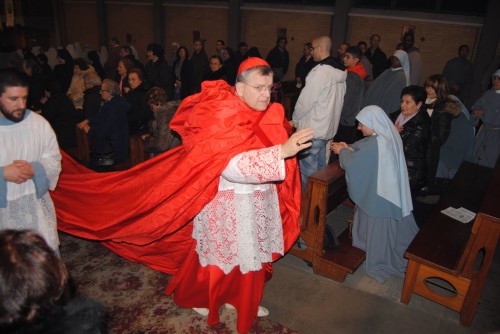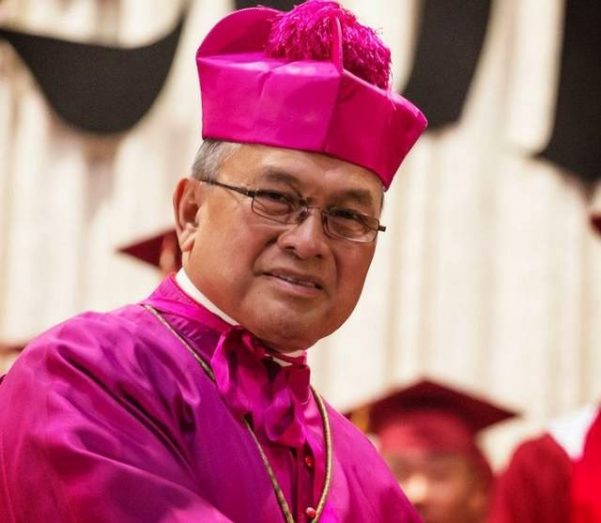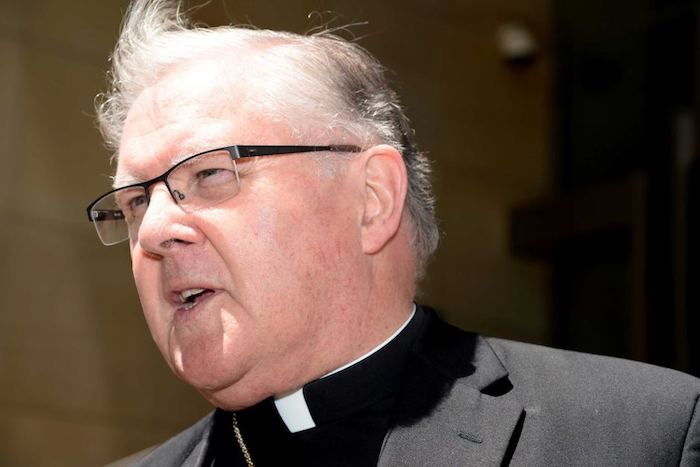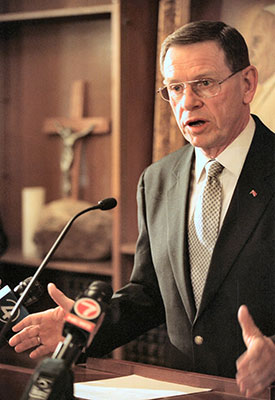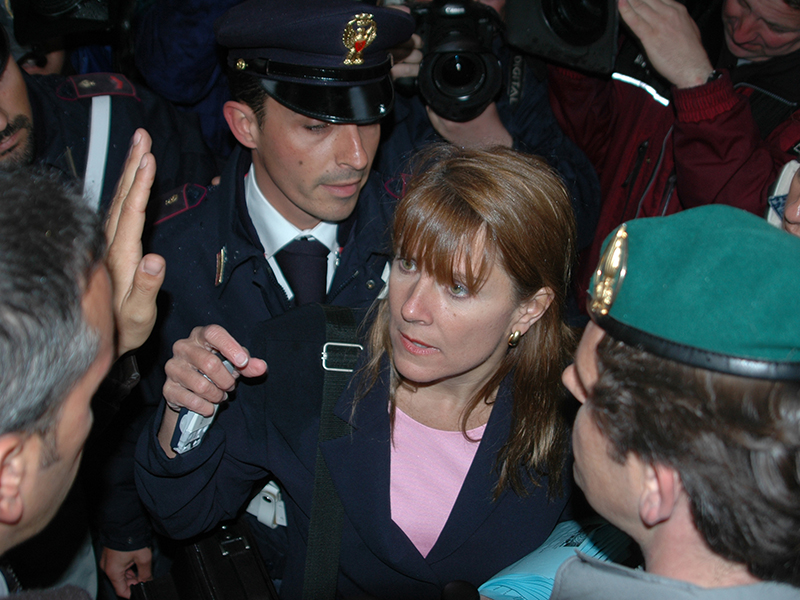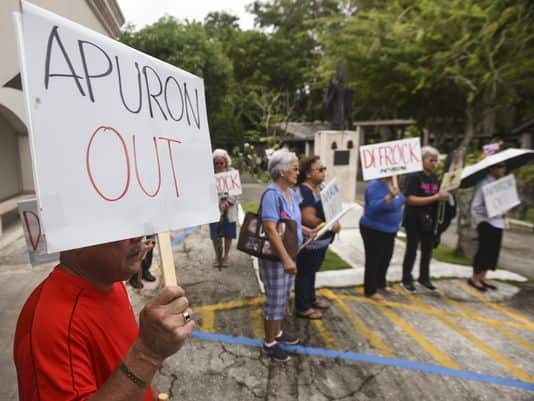
By
Two U.S.-based groups dealing with the Catholic clergy sex abuse cases worldwide are not happy with the Vatican’s choice on who will preside over Guam Archbishop Anthony S. Apuron’s canonical penal trial.
The Vatican sent Cardinal Raymond Leo Burke and other members of a tribunal to Guam to hear from witnesses in the trial of Apuron, who is accused of raping and sexually abusing altar boys in the 1970s. The Archdiocese of Agana, in a statement released late Saturday, said a team of four canon lawyers and another official from Rome worked here Feb. 16-17 and left the morning of Feb. 18.
“From what we know of Burke’s record on abuse, he is an odd and unpromising choice for such a sensitive task,” said Anne Barrett Doyle, co-director of BishopAccountability.orga Massachusetts-based information resource that gathers documents and data about the clergy sex abuse crisis in the Catholic Church.
Doyle said Burke has a “troubling record” in dealing with clergy abuse cases.
“He has consistently defended accused clergy and played hardball with victims,” Doyle told Pacific Daily News.
Burke, in an Associated Press report, said he aims to wrap up the Apuron investigation by the summer. The report also said Burke denied he had been sent to Guam as “punishment,” telling Italy’s Mediaset it was normal for cardinals to take on extra jobs in their areas of expertise.
Burke is a top canon lawyer who has clashed repeatedly with Pope Francis.
The Illinois-based Survivors Network of those Abused by Priests, or SNAP, said the Vatican’s choice has a “sketchy history when it comes to dealing with the abuse crisis.”
“(Burke) was a very controversial figure in St. Louis and the Vatican for his hard-line conservative views. He was sidelined by Pope Francis for openly criticizing the Pope,” Joelle Casteix, SNAP’s volunteer western regional director, said.
‘Canonical penal trial’
The Archdiocese of Agana, in a statement released Saturday night, said that before the team left, “They conveyed their appreciation to all individuals whom they interviewed during their work here and encouraged all of Guam’s faithful to remain grounded in Christ,” the archdiocese wrote.
Archbishop Michael Jude Byrnes was appointed by Pope Francis late last year to replace Apuron if necessary, In the same Archdiocese statement, Byrnes said he is “pleased that the Vatican is advancing this process.”
“The Archdiocese commends all witnesses who have stepped forward to tell their stories. We will continue to redouble our efforts to combat, root out and address sex abuse in the Archdiocese. We pray for a speedy and just result,” the statement said. It added that preventative measures, including formation of a task force to protect future possible victims are in place. A parish-level team from St. Francis presented the first of what will be a series of training programs followed by other Guam parishes.
Apuron is being investigated not only because of alleged sexual abuse of minors, but also other criminal activities and the investigation may have started in 2008, said Attorney David Lujan, who represents at least 18 former altar boys allegedly sexually abused by Catholic clergy on Guam and the number could double in the weeks ahead.
Lujan pointed to the length of time, nine years, before the Vatican has come out here to talk to witnesses as part of their investigation of Apuron.
Archbishop Savio Hon Tai Fai, in 2016, made several statements pointing to the Vatican’s concerns about Apuron long before former altar boys publicly accused Apuron of rape and sexual abuse.
Hon said these include deeding a Yona seminary property to a group without due process in conformity with Catholic church law, disobeying the Holy See’s instructions to rescind and annual that deed restriction, failure to talk to his own priests, favoritism towards one group, inability to involve more people in decision-making for the archdiocese, and failure to ensure constant communication with the Holy See through Archbishop Martin Krebs, among other things.
Apuron has denied the sexual abuse claims.
‘Not a good choice for Guam’
The Vatican officials working on the Apuron canonical penal trial are a concern for international organizations working on the church crisis worldwide, as well as the attorney for the clergy abuse survivors on Guam.
SNAP’s Casteix said in her personal view, Burke was deputized because of the belief that he might appeal to Catholics on Guam who felt alienated by the Neocatechumenal Way.
“Unfortunately, Burke also has a sketchy history when it comes to dealing with the abuse crisis in St. Louis: blaming gay clergy and and allegedly engaging in culpable negligence,” Casteix said.
Apuron is one of 84 bishops worldwide who have been accused publicly of sexual wrongdoing, based on data that BishopAccountability.org has compiled.
Doyle said nothing in Burke’s record suggests he is a good choice to head Apuron’s tribunal.
“He does not seem capable of the extreme severity toward offending clergy that Pope Francis called for last week,” Doyle said.
In 1990, for example, Burke as a young canon lawyer defended before the Signatura an accused Pittsburgh priest that then-bishop Donald Wuerl was seeking to remove from the priesthood, Doyle said.
“When Burke won his case, Wuerl himself flew to Rome to argue for the priest’s removal and ultimately prevailed,” Doyle added.
Doyle said that on the other hand, there’s little known about Burke’s involvement since 2008 when he left the U.S. to serve as Prefect of the Apostolic Signatura.
“Despite his disagreement with Pope Francis on many other topics, let’s hope Burke aligns with him on this most crucial issue facing the Church. In the tribunal in Guam, Burke must heed the Pope’s pledges of zero tolerance and accountability for bishops,” said Doyle. “Sadly, early indicators suggest otherwise.”
Doyle said Burke already has warned at least one Apuron victim that his testimony will be sealed under the pontifical secret, “and that does not bode well.”
“Without transparency, there cannot be accountability,” Doyle added.
Lujan was not shy to share his mistrust of the Rev. James Conn, who serves as prosecutor in the Apuron canonical trial.
The Vatican tribunal heard from some witnesses last week, but didn’t directly hear from one of Apuron’s alleged sexual abuse victims, Roland Sondia. Sondia declined to give testimony without Lujan’s presence and said he would provide written testimony later. Among those deposed was Deacon Steve Martinez, the former sexual abuse response coordinator whom Apuron fired for reportedly raising concerns about the archdiocese’s mishandling of sex abuse allegations for several years.
Complete Article HERE!

